Images of the war in Ukraine have inspired people worldwide to search for ways to try to help.
Some have opened their homes to refugees or pledged donations to emergency appeals.
Others have sought to support Ukrainian businesses. Among them is New Yorker Chelsey Brown.
As she trawled for ideas online, Brown, age 29, stumbled across a listing from a vintage reseller in Zaporizhzhia, southeastern Ukraine.
The item? A large, green photo album crammed with black-and-white images of Soviet-era Ukraine.
Not the most obvious way to express solidarity, but one that made perfect sense to Brown – an interior designer and writer who in her spare time uses genealogy to track down what she describes as the “rightful” owners of family heirlooms she acquires by scouring antique fairs, flea markets and online.
“I saw it and immediately knew it was special and needed to go back to the family,” she told CNN.
“I was trying to find Ukrainian small businesses to support. The photo album popped up and I clicked on it and it led me to an eBay listing.”
The album took three weeks to arrive by mail from Zaporizhzhia, but in the meantime Brown used what little information she had to try to track down the descendants of the people in the pictures.
But the album – featuring images dating from the 1920s to the 1970s – contained few clues.
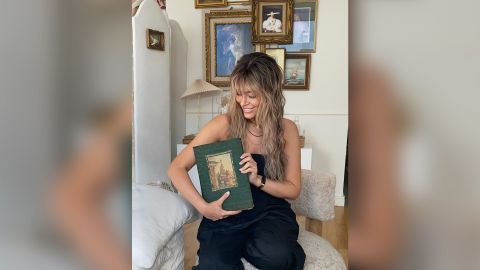
“The captions are all in Russian, which made the research very difficult,” Brown told CNN.
Contacts on social media helped her translate some of the names into English, while Brown also tapped in to Google Translate.
“I was researching this day and night without any leads. I was desperate to find this family!” she said.
All she had to go on were two names: Vadim Danilovich and Yuri Vadimovich, written in Cyrillic script beneath some of the images. She suspected that the Ukrainian patronymic tradition – where a component of a personal name is based on the given name of one’s father – meant Yuri was the son of Vadim. There was only one mention of a surname in the album: Makovetskyi.
Undeterred, Brown used an online Russian keyboard to search the names.
“That led me down a rabbit hole,” she told CNN. “I spent days trying to find any contact I could for this family.”
Eventually she received an email from Ivan Makovetskyi – the 29-year-old son of Yuri and grandson of Vadim. He told Brown his grandfather died in 2008.
He lives with his parents and his grandmother, Vadim’s widow, in the central Ukrainian city of Dnipro.
Before the Russian invasion in February, Makovetskyi was an English teacher “in one of the more prestigious schools in the city,” he told CNN, while the family printing business catered to theaters and cultural institutions. But as they ceased to operate, so did the family business.
Makovetskyi has recently been taken on as a local spokesman for an Italian humanitarian organization operating in Ukraine, but otherwise the family has no income.
He told CNN: “We are okay, we are not starving or anything of the sort, but the situation is rather difficult right now.”
“My grandad was a man of encyclopedic knowledge, a human anatomy professor and even a head of the department at our Medical Academy here in the city of Dnipro,” he wrote to Brown.
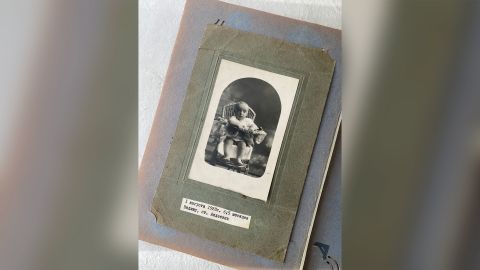
The family are unclear about how the album came to be on sale but suspect it may have been lost when relatives moved house.
While Makovetskyi and his family were pleased to hear it had been found, their immediate concern is with the present situation.
“It may sound blunt, but these days memories here are not worth much,” he wrote to Brown, describing civilian life in Ukraine today as “dire”.
The sound of air raid warnings has become a regular feature of life for the family, who still live in the building in Dnipro that was home to Makovetskyi’s grandfather, Vadim.
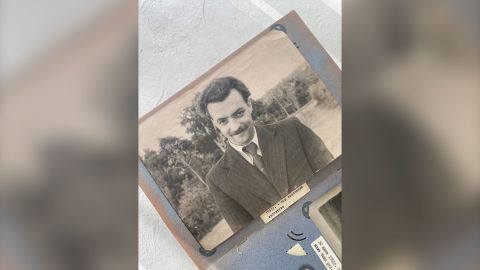
“We are so used to hearing the air strike siren after which nothing happens, that most people, myself included, do not even bother to go to the basement or shelter,” he said.
Makovetskyi’s father, Yuri, is seriously ill but is not receiving the treatment he needs due to the conditions in Ukraine. Meanwhile, the closure of the family business has left them struggling financially.
After finding the family, Brown felt compelled to act. She has since sent them financial support and hopes to return the album in person once the war is over.
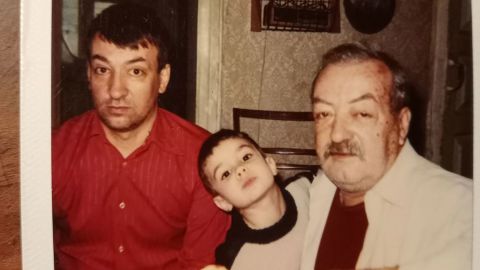
Ivan Makovetskyi told CNN in an email that his family were initially suspicious of Brown’s assistance, especially as they have always been “proud and independent.”
“The hardships we are facing with lack of work and a constant threat of long-range rocket attack of course contributed to the eagerness to accept this help without question, but the second reaction was coming from pride,” he said.
But that eventually changed, according to Makovetskyi, who is now in regular communication with Brown.
“I have never seen such a gamut of expressions go over my parent’s faces so quickly, until it settled into reluctant acceptance, gratitude and a sense of the surreal,” he added.
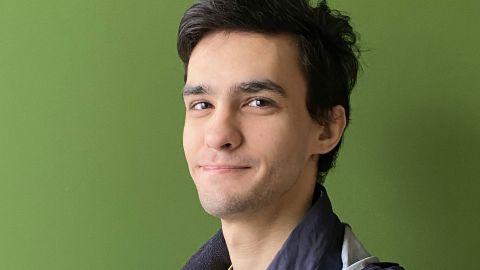
Brown told CNN she had “created a connection” with Makovetskyi after studying his family’s ancestry for so long.
“My heart and mind persuaded me to send money once I was able to get into contact with the family and learn more about them,” she said.
“They are hard-working, proud, kind, grateful; and losing their jobs and income due to a situation they cannot control was enough reason for me.
“I cannot wait until the day where I can meet them all in person,” she said.
Source: www.cnn.com
